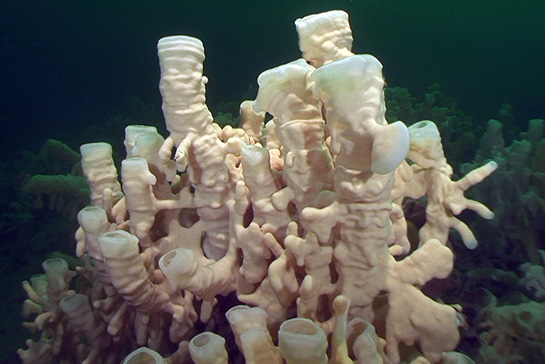
- Sustainable Planet -
- 2mins -
- 97 views
Thank you Canada for protecting the unique Glass Sponge reefs forever
The conservation community is celebrating a new marine protected area (MPA) for Canada’s ancient and unique glass sponge reefs, which provide a vital habitat to a wide range of marine animals including endangered rockfish.
Jurassic Park submerged
The glass sponge reefs are considered one of the great wonders in Canada’s oceans. Although world oceans have plenty of individual glass sponges, B.C.’s Hecate Strait has the only sizeable reefs. Thought to have gone extinct for millions of years, the modern-day discovery of these reefs in the late 1980s stunned the scientific community. In fact, they’ve been dubbed “Jurassic Park submerged”.
Sponges are the world’s oldest multi-cell organisms
British Columbia’s prehistoric glass sponge reefs are an international treasure. Found in Hecate Strait and the Southern Strait of Georgia, these fragile reefs provide vital habitat to a wide range of marine animals including endangered rockfish, but are very sensitive to disturbances.
The sponges attach themselves to each other and nearby rocks, creating reefs eight stories high in some places. Although glass sponges look like plants, they are actually animals. In fact, sponges are the world’s oldest multi-cell organisms. They don’t have lungs or mouths. Instead, sponges pump water through their bodies to breathe, feed and remove waste.
There are more than 7,000 described species of sponges alive today in both fresh and marine waters and many more that remain to be described and named by scientists. Glass sponges make their skeletons out of silica (glass).
Threat: their unique skeletal structure makes the glass sponge reefs extremely sensitive to sedimentation and to physical disturbances from bottom trawling activity. In fact, over half of the large reefs in Hecate Strait were destroyed by trawlers before fishing closures were put in place by the federal government in 2002.
Scientists calculate these large reefs date back 9000 years – that’s older than the Pyramids – an incredible living history. But they’re not simply museum relics. These reefs continue to provide huge, safe habitats for all manner of rockfish and other creatures along the North Coast.
Now, at least, their future looks secure.
Sources: iucn.org, glassspongereefs.com


